Should You Use Humor in Your Brand’s Content?
The use of humor is an incredibly powerful marketing tool in the right hands, but in the wrong hands, trying to be funny can result in disaster. This leads to the question: Should you use humor in your branding content? Where can humor help, and where can humor cause challenges?
The real issue with using humor as a branding tool is that humor is subjective. What’s funny to you may not be funny to your customers (or anyone else, for that matter.) If your sense of humor doesn’t match that of your customers, you run the risk of creating cringe-inducing content, or worse, you end up alienating your audience altogether.
Using humor in your brand’s content can be a fun way to engage, but be careful
But when humor does work, it can lead to viral content, increased engagement, and even stronger emotional connections with your brand.
Humor has a way of breaking down walls and making your brand feel more human and relatable—qualities that can lead to greater customer loyalty!
Know Your Audience
This leads to the most important point about the use of humor in content marketing: know your audience. If your brand markets to an audience known for enjoying dry, witty humor, go for the ironic jokes and sarcastic remarks.
If your audience loves slapstick humor, play up the obvious jokes and go for humor that has a broad appeal. Podcasting can be a great way to do this, but that all comes down to the topics of your podcast. A true crime podcast probably isn’t the best place to start dropping jokes.
Humor can sometimes be an easy way to bring in younger audiences or those who appreciate a brand that doesn’t take itself too seriously. But that approach isn’t one-size-fits-all—so make sure your style matches your customer base.
Understanding the platform can make a big difference in how humor comes across
One great way to test this is by starting small. Experiment with humor in lower-stakes content, such as a playful caption on social media, before diving into larger, more visible campaigns.
This gives you the opportunity to measure the audience's reaction and adjust accordingly.
Know Your Platform
It’s also vital to know the platform you’re using to present humorous content. LinkedIn, for instance, may not be the best place to attempt humor (although the user base of LinkedIn has been changing that in recent years, but that’s a different story), but X lends itself to humor much more easily.
Each platform has its own culture, and understanding how users behave on each one can make all the difference. Twitter, with its fast-paced, short-form content, is perfect for witty one-liners and meme-style humor.
Facebook might be a better place for longer, story-driven humor. On Instagram, visuals are king, so humor might come in the form of clever images or videos.
Understanding these nuances can help ensure that your humor doesn’t just land but that it feels natural on the platform you’re using.
Forcing humor can lead to some cringeworthy content
Don’t Force Humor
You also can’t force humor. If you’re genuinely funny, it will come through in your content. If you’re trying really hard to be funny, your content will seem forced, and your audience will be able to smell the desperation a mile away.
Look for opportunities to use humor as a personal connection point, a relatable moment where you take off the business persona and put on the friend persona. Be genuine, and even if your humor doesn’t sell the moment to everyone, the moments that it does sell will be more valuable.
Authenticity is key—humor should never feel like a sales tactic, but more of a natural extension of your brand’s voice.
The human connection is vital for all types of content, but especially for humorous content.
People Want the Human Connection
Keep in mind that people value brands that feel human, especially in the age of generative AI which can feel robotic (because, well, it is.) Genuine humor as expressed by an actual human being can do wonders for your brand as long as it connects with your audience.
To take things a step further, humor can be an effective way to communicate that you understand your audience’s world and that you’re in tune with their values, struggles, and daily lives.
That kind of connection can sometimes feel like threading a needle, but when you finally make the connection, it’s worth it.
Think About Your Branding
Lastly, if you’re considering the use of humor in your brand’s content marketing efforts, think about your branding as a whole. If your branding positions your business as a serious, buttoned-down company, trying to use humor can be difficult.
You don’t want to lose sight of the bigger picture in an attempt to make a joke. On the other hand, you may have a moment where using humor can humanize your brand’s serious nature, but never forget your overall positioning.
Everyone's a comedian, but some people shouldn't be. If humor doesn't fit your brand's image, try to steer clear of making jokes.
It’s also worth considering how humor fits into your brand’s long-term strategy. A few well-timed jokes can create short-term buzz, but if they don’t align with your overarching brand message, that buzz could fade quickly.
Instead, think about how humor can be woven into the broader narrative of your brand, helping to foster deeper connections with your audience over time.
The Risks of Humor Missteps
It’s important to remember that humor, while effective, can also be risky. Misjudged jokes or off-color remarks can backfire, leading to backlash on social media or even damage to your brand’s reputation. It’s essential to maintain a level of sensitivity and inclusiveness, especially in today’s hyper-aware environment.
As with all things your brand says in public, think before you speak, and ask for feedback from others first.
If you’re not sure about a joke, test it internally before sharing it publicly. Better yet, involve a diverse team in the brainstorming process to ensure the humor resonates across different demographics.
Does anyone remember Kendall Jenner and the Pepsi commercial? Yeah, that didn’t work out so well.
While that example didn’t involve humor, it goes to show that having a few sets of eyes from different perspectives on your creative might be a good idea before rushing something out the door.
Don’t Beat a Dead Horse
We also encourage brands to be weary about beating a dead horse or running a joke into the ground. Even if an attempt at humor was wildly successful, there is such a thing as overdoing it.
Taking a joke past its prime can turn playful into pitiful.
When something stops being funny and you keep running with the joke, it can have the opposite effect. Your jokes suddenly go from playful to “Ugh! Here we go again.” This is especially true if you’re posting the same content too often on social media. Magnified on a world-wide-web-sized scale, this can be an issue and tarnish your reputation.
Once again, this is why it’s good to have others review your creative and strategy on a regular basis, but it’s also why checking things like online comments can provide constructive feedback to know a joke has run it’s course.
Striking the Right Balance: Humor as a Strategic Branding Tool
At the end of the day, using humor in your brand’s content can be an incredibly effective way to engage your audience, create emotional connections, and humanize your brand.
However, humor is subjective, and what resonates with one group may fall flat with another, making it crucial to know your audience and the platform you're using.
Authenticity is key—forced jokes can backfire, and overused humor can quickly grow stale. By carefully considering your brand’s overall tone, avoiding humor missteps, and knowing when to stop, you can ensure that your humor enhances your brand rather than detracting from it.
Learn More About Creating Valuable Content
If your Charlotte NC business is having trouble creating content, funny or not, let Charlotte Content Marketing help. We specialize in creating personalized content that engages audiences and drives conversions. Contact us today by calling (704) 323-6762, or click to contact Charlotte Content Marketing online.







